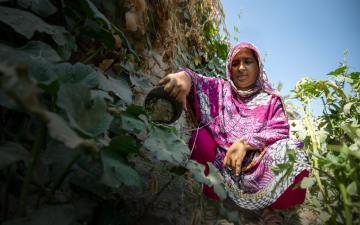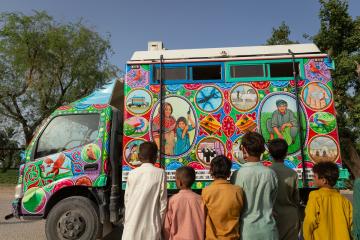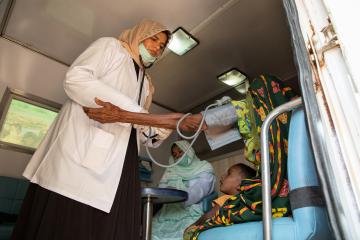
An uncertain future: How communities are preparing for further climate disasters after the Pakistan floods
5 July 2023
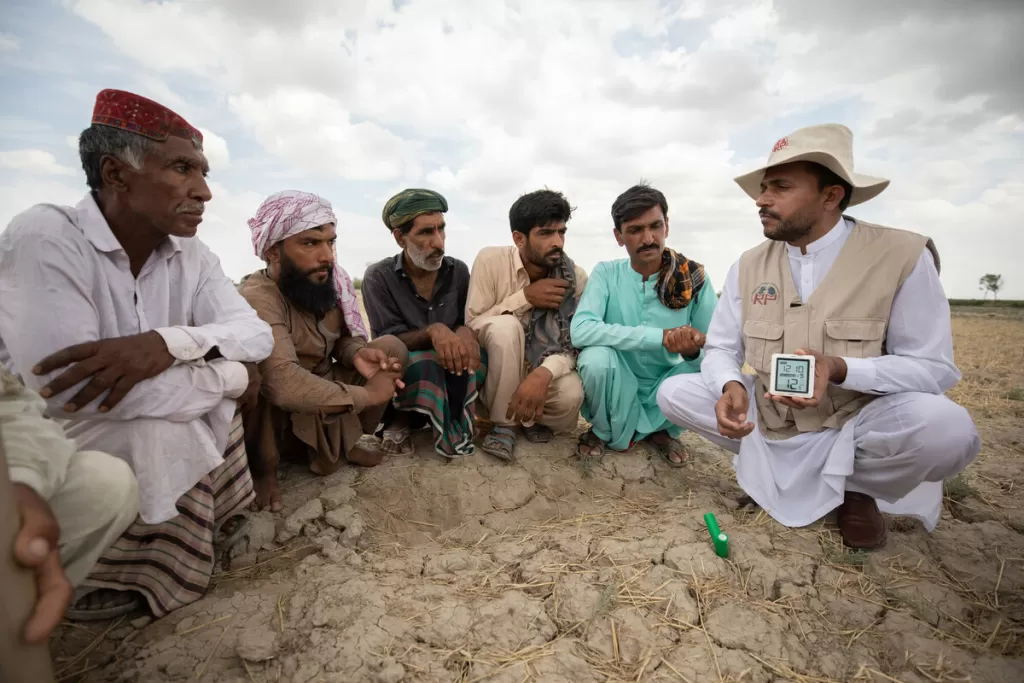
Farmers who lost their livelihoods in the floods are taught how to use a soil moisture metre by Dr Iqbal Hussain (r) of REEDS Pakistan, the local partner of DEC charity Tearfund. Photo: Khaula Jamil/DEC
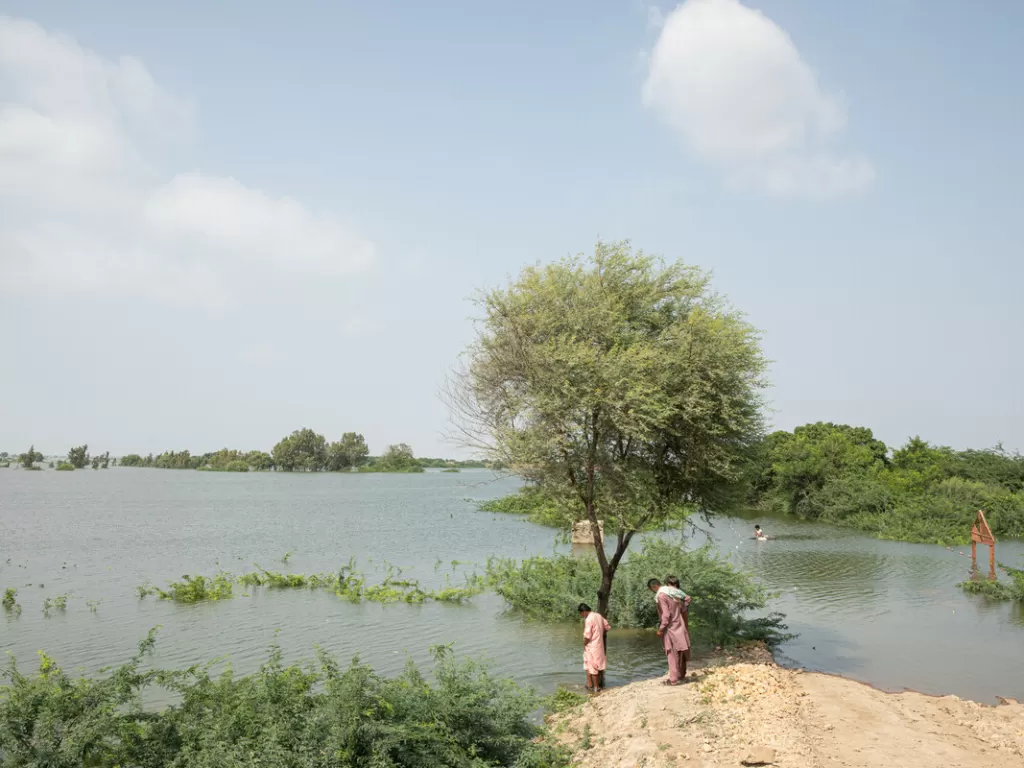
Submerged fields of crops in Sindh province in September 2022, after the historic floods that devastated the livelihoods of rural communities. Photo: Insiya Syed/DEC
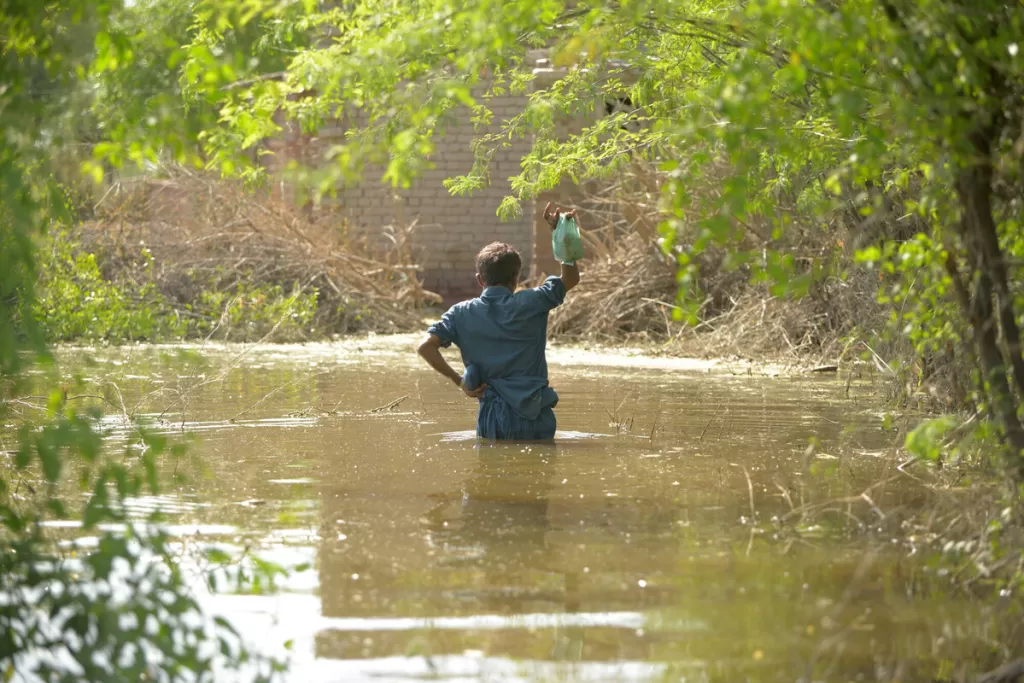
A man wades through floodwater in Sindh in September 2022, as areas that were once agricultural land begin to look like rivers and lakes. Photo: Akifullah Khan/DEC
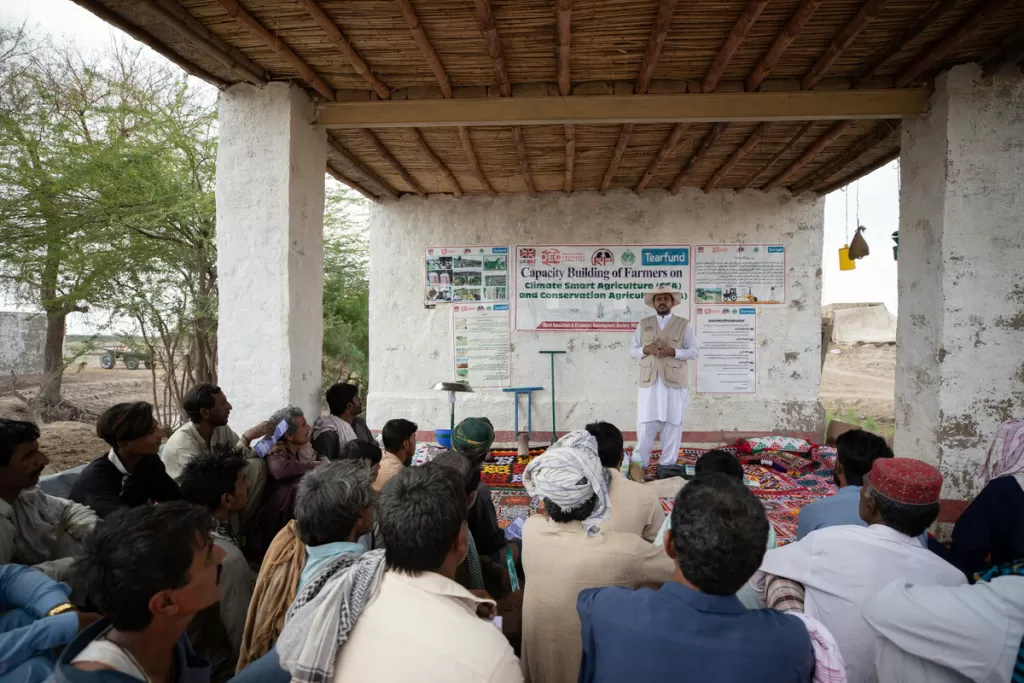
Dr Iqbal Hussain conducts a workshop in April 2023, as part of Tearfund's work to build the resilience of farming communities in Sindh. Photo: Khaula Jamil/DEC
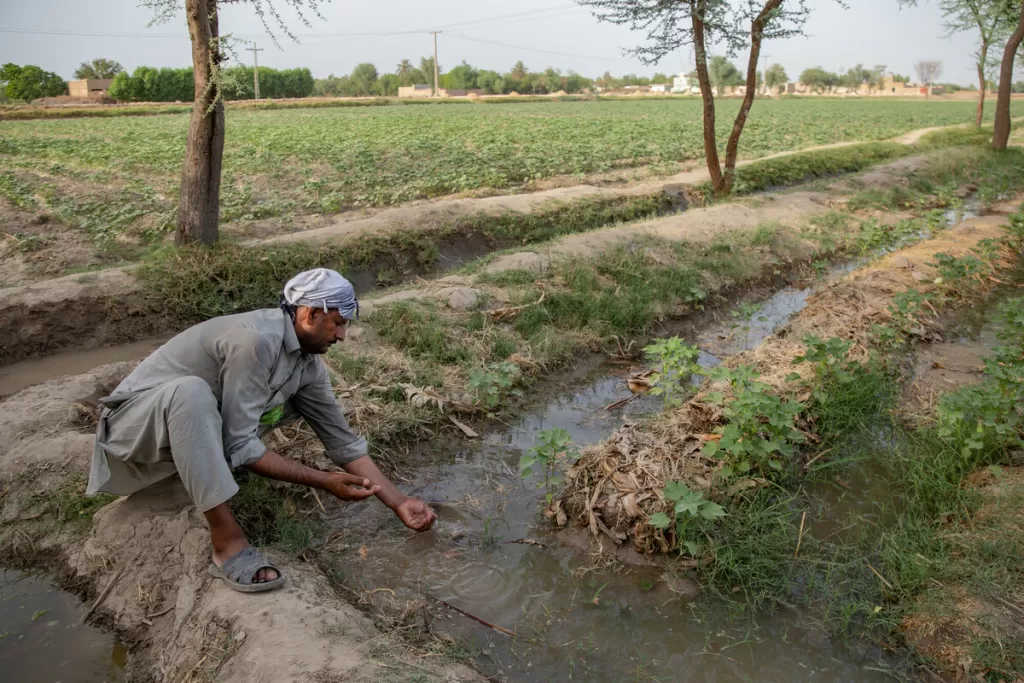
Maula Dinno works in his cotton field in Sindh, rebuilding his livelihood after having lost lost his food stocks, crops and animals in the 2022 floods. Photo: Zoral Khurram Naik/DEC
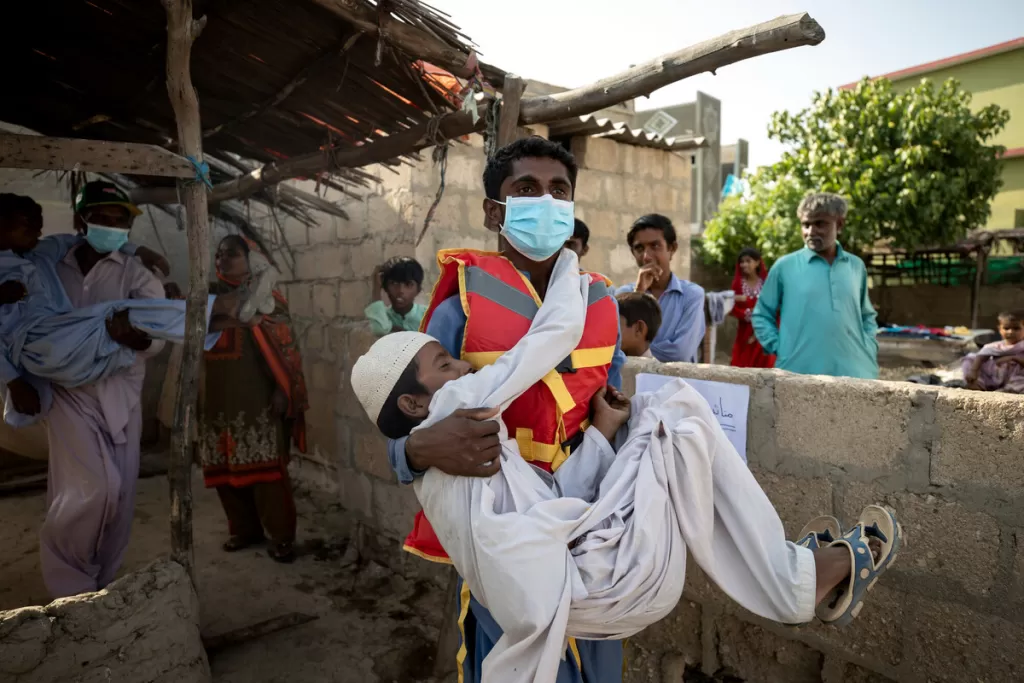
Local residents take part in a disaster mock drill initiative by Action Against Hunger in Sindh, September 2022, to help them be better prepared for future emergencies. Photo: Khaula Jamil/DEC
